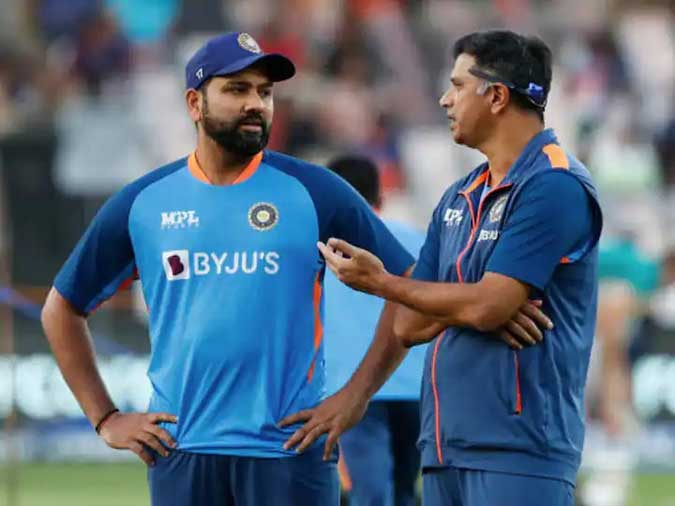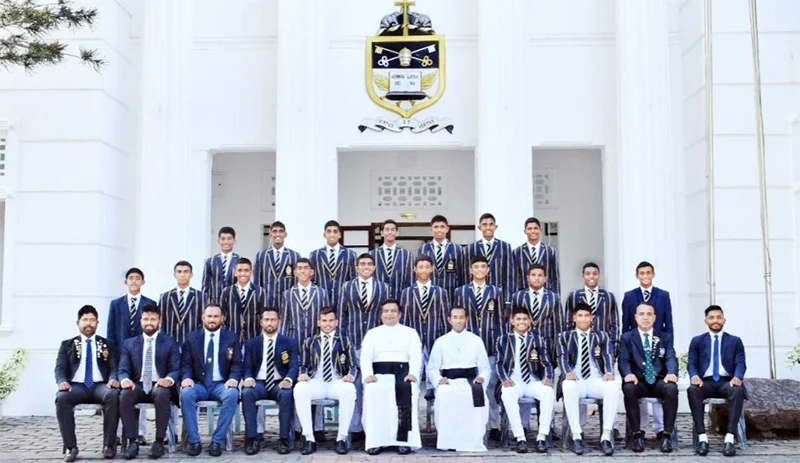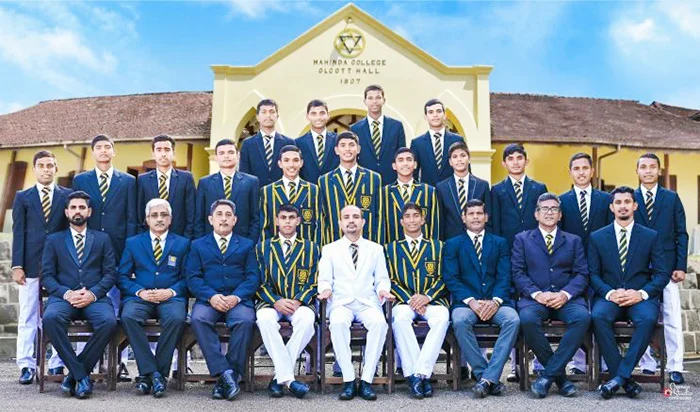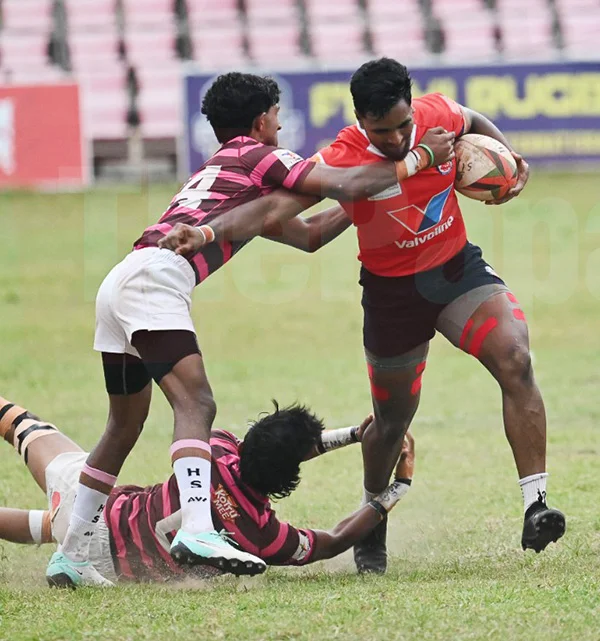Sports
Rohit Sharma’s Test captaincy faces its first huge test

It’s been a little over a year since it officially began, but has the Rohit Sharma era as India captain really begun at all?
It’s made a spluttering sort of start in Test cricket: Rohit missed three of India’s five Tests since he became their all-format captain. Injuries, in fact, have forced Rohit to miss eight of India’s last 10 Test matches. He was Player of the Match in India’s last Test before this stretch of games, a landmark victory that took them to a 2-1 series lead in England, months after they had beaten Australia 2-1 in Australia.
Since then, India’s world-beating aura has faded somewhat – they lost Tests they could have won in Johannesburg, Cape Town and Birmingham, and won one they could quite conceivably have lost in Dhaka – and Rohit has mostly been an absent figurehead.
He has had more of a chance to make an impact as a white-ball captain, and his overall results have been fantastic. Rohit has the best win-loss ratio of any India ODI captain who has led at least 10 times in that format, and only Hardik Pandya, who has only captained in 11 matches, sits above him on the corresponding T20I list.
Reaching the semi-finals of the 2022 T20 World Cup a year after exiting the same tournament at the group stage could be seen as a significant achievement for both Rohit and Rahul Dravid, who took over as head coach after the 2021 tournament. But it wouldn’t be lost on either of them that, for all the gains India made as a T20I side between the two tournaments, particularly in terms of batting approach, the same failings cost them in both 2021 and 2022.
Dravid knows from experience that tournament results end up defining captains, and that one bad tournament can cancel out the goodwill earned via bilateral results, especially in white-ball cricket. He could be remembered as the captain who turned India into a world-class chasing team in ODIs, but it’s likely that far more remember him for leading India to a group-stage exit at the 2007 World Cup.
Process dominates cricket discourse far more in Rohit’s era than it did in Dravid’s, but results – specifically results in “big” games and tournaments – eventually come to define the tenures of captains, coaches and selectors.
That Rohit succeeded Virat Kohli was itself, in part, down to a sense that he would be a big-tournament captain, and India had been starved of big-tournament titles since 2013. At the time he took over the white-ball teams, Rohit had just won his fifth IPL title as Mumbai Indians’ captain, and there were three ICC trophies up for grabs in the next two years.
Tournament results are, of course, heavily dependent on how good a team is relative to the competition, the format – one or two bad days are enough to send a strong contender out of the T20 World Cup at the group stage than they are to prevent one from reaching the IPL playoffs – and luck.
When teams win, though, the complicated story of their success is often simplified, and retold with the captain cast as some sort of all-knowing, benevolent mastermind. In the media, this premise is usually backed up with player testimonials – it’s a fresh surprise each time players in winning teams say good things about their captains, no doubt – rather than any analysis of how this superhero captain’s decision-making differed from that of other captains in similar situations, and no one ever asks whether the same team, filled with so many other winning ingredients, could have just as easily won with a different captain.
For whatever it was worth, then, Rohit came to the India captaincy with something of an aura. Now, just over a year since becoming all-format captain, there are threats to his leadership in every format.In T20Is, the threat has a name. Hardik has captained India in every T20I they’ve played since the World Cup semi-final against England in November. Rohit scored a scratchy 27 off 28 balls in that match, and he hasn’t played a T20I since. Now this is mostly because India are building up to an ODI World Cup and are looking to rest their senior players from T20Is, but it’s not inconceivable that one or more of the young top-order contenders who are now getting their chance could make themselves exceedingly difficult to leave out by the time T20Is become top priority again.
The future of Rohit’s ODI captaincy, meanwhile, could hinge on whether or not India translate their status as favourites for this year’s home World Cup into actually winning it. It’s an unfair amount of pressure, but it is what it is.
His Test captaincy, of course, has barely begun at all.
It’s against this backdrop that Rohit will lead India in one of Test cricket’s highest-profile contests. The 2016-17 Border-Gavaskar Trophy was perhaps the greatest Test series India has hosted this millennium – yes, arguably even greater than 2000-01 for the range of quality performances from both sets of players – a series where Australia made them reach into their deepest reserves of skill and stamina to complete a 2-1 comeback win.
The Australia of 2022-23 could be an even better collection of players than the one that toured in 2016-17, and could be an even better team if they address one key structural issue – the seeming lack of a quality second spinner.
India will, as ever, begin the series with a formidable spin attack and, despite the absence of Jasprit Bumrah, a group of quicks who are often deadly in home conditions. The batting will give them a few more headaches: India will be without Rishabh Pant’s genius and – for the first Test at least – Shreyas Iyer’s counterattacking flair against spin. This is a worry because they’ve been India’s best batters in subcontinental conditions since the start of 2021, a period in which Cheteshwar Pujara has averaged 34.61 in Asia and Virat Kohli 23.85. Rohit’s red-ball rhythm, meanwhile, is a bit of an unknown, since he hasn’t played a Test match since March 2022.
For all that, India should still be favourites, but if you’re an India fan and your normal pre-series anticipation is tinged with a sense of nameless dread, it could be because of this: R Ashwin is 36; Rohit, Pujara and Umesh Yadav are 35; Kohli and Ravindra Jadeja are 34; and Mohammed Shami is 32. Ishant Sharma and Ajinkya Rahane, both 34, may already have played their last Tests.
It’s fallen upon Rohit to captain India’s most successful generation of Test cricketers when they’re ageing at the same time. Managing this transition could be an exceedingly tricky task, and quite a lot of it – what can a mere captain do, for instance, to unearth successors to all-time greats? – is beyond his control, but it’s one other thing he’ll be judged on, for better or worse.
The Rohit Sharma era, then, could be a short one. And if this series against Australia – upon whose outcome hinges India’s qualification for the World Test Championship final – doesn’t go to plan, it could threaten to end before it’s even had a chance to properly begin.
(cricinfo)
Sports
Joes favourites, Petes out to defy them

91st Battle of the Saints
St. Joseph’s hold the edge when they meet arch rivals St. Peter’s in the 91st Battle of the Saints’ big match starting today. After having beaten Petes by nine wickets in the Under 19 Division I Tier ‘A’ quarter-final at Polonnaruwa the Joes arive at the SSC ground to prove that the victory registered two months ago was not a fluke.
St. Joseph’s captained by wicketkeeper batsman Kenath Liyanage are concluding a successful season after having remained unbeaten until they were eliminated in the semi-final by St. Sebastian’s .
A strong batting lineup and a dynamic spin department are making them a formidable outfit.
Experienced campaigner Yenula Dewthusa and Demion de Silva with their left-arm spin and Aveesha Samash and Nushan Perera with off spin provide the Joes variety in the spin department. Dewthusa, Demion de Silva and Nushan Perera are their leading wicket takers. Spinners doing well at schools matches have not been effective at the SSC during the last few big matches. It will be interesting to watch as to how the spinners in these two teams would fare during the three days.
For pace the Joes will look to Maanasa Madubashana and Dunick Perera who are expected to share the new ball.
Abishek Jayaweera and Aveesha Samash will open batting, while Senuja Wakunugoda, skipper Liyanage, Dewthusa and Rishma Amarasinghe form the rest of the top order batting lineup.
St. Joseph’s registered three outright victories this season (beat St. Servatius’, St. Benedict’s and St. Peter’s) and remained unbeaten.
St. Peter’s under Oween Salgado’s captaincy did well to reach the business end of the Tier ‘A’ tournament. But the Petes were uncertain of Salgado’s participation in the big match as they were yet to assess his fitness yesterday morning. He was wounded during a match and the stitched wound had not fully healed according to team sources.
Petes beat Gurukula, St. Aloysius’ and Holy Cross this season. Their only defeat was at the hands of their arch rivals. They will look forward to avenge the defeat at the big match.
The Petes will rely on the likes of Dilana Damsara, Thareen Sanketh, Nathan David and Jason Fernando to take a greater share of batting responsibilities. The middle order batsman Sanketh is their leading batsman and has maintained an average of over 50 runs.
Speedsters Ethan Ransilige and Joshua Sebastian will share new ball duties for the Petes.
Lashmika Perera and Sanketh will share most of the slow ball duties.
St Peter’s are in the possession of the coveted Rev. Fr. Maurice J. Le Goc Trophy having last won the big match under the captaincy of Vinu Mohotty in 2016.
St. Joseph’s lead the series tally 12-10. They last won under Ruwantha Fernandopulle’s captaincy in 2008.

St. Peter’s College Team
(Seated from left) Harsha Prabath Perera (Asst. Physio/Trainer & Massuer), Thushara Maduhanka (1st XI Asst. Coach),
Nalin Wijesinghe (Head Coach), Priyadarshana Cooray (MIC – Senior & Junior), Oween Salgado (Captain), Rev. Fr.
Rohitha Rodrigo (Rector), Rev. Fr. Praveen Wijesekara (Priest in Charge – Cricket), Lashmika Perera
(Vice Captain), Dilana Damsara, Rohan Fernando (MIC – 2nd XI), Dinuka D. Godakanda (2nd XI Coach).
(Standing 1st row from left) Dinsara Rathnaweera, Dineth de Silva, Tharin Senvidu, Nathan David, Hiruka Silva, Thareen
Sanketh, Virul Amarapala, Yatheendra Jayaweera, Salith Gallage, Raphael Hettige. (Standing 2nd row from left) Jason Fernando,
Joshua Sebastian, Savi Fernnado, Ethan Ransilige, Asadisa De Silva, Sadeesha Kariyawasam, Enosh Peterson
by Reemus Fernando
Sports
To play or not to play is Richmond’s decision

120th Lovers’ Quarrel
The stakeholders of the Lovers’ Quarrel Big Match were still pursuing to make the historic 120th edition a reality on the eve of the match after Richmond authorities threatened to pull out citing that Mahinda had violated an accepted norm by included a newly recruited player in the big match team.
The historic edition was scheduled to commence as a three day encounter at the Galle International Stadium today. But the match remained doubtful at the time this edition went to press. The officials of both teams were unavailable for comments on the eve of the match. According to sources close to the two teams the joint big match committee was scheduled to meet in the evening yesterday to take a final decision regarding the match.
Richmond threatened to pull out after Mahinda included Charya Paranavithana in their big match team. Paranavithana captained St. Aloysius’ this season. He is not eligible to play matches that come under the purview of Sri Lanka Schools Cricket Association as he is yet to be registered as a Mahinda player. Big Matches are not played according to SLSCA rules but Richmond authorities had raised concerns over the player registration citing that the two schools had honoured the norm even at the big match.
According to sources Richmond were threatening to pull out if Paranavithana’s name was included in the playing XI on the match day morning.
Mahinda concluded a highly successful season as the team captained by Kaveen Rukshan earned the Under 19 Division I Tier ‘A’ promotion this year. They were also the joint champions of the Tier ‘B’ tournament with Thurstan. In contrast former Division I champions Richmond had to fight relegation scares. The team captained by Thamindu Pradeeptha later successfully retained their Tier A position by recording an outright victory.

Mahinda College Team
Seated left to right: T.D. Ajantha Kumara (Head Coach), Y. Nishantha Kumara (Master in Charge – Senior), L. P. Weeraman (Deputy Principal –
Sports), Kaveen Rukshan (Captain), Mr. Janaka Peduruheva (Principal), Arosha Udayanga (Vice Captain), Mr. M.W. Ajith (Prefect of Games), Mr.
Jagath Samarakoon (Master in charge – Junior), Mr. Sachith Lakmal (Asst. Coach)
Standing (Middle row) – left to right – Dineth Pahasara, Thiyon Helika, Vinupa Nethmira, Sahanjith Irugalbandara, Dulisth Darshana, Senuka
Dangamuwa, Sadew Nethmina, Manitha Rajapaksha, Vishmitha Sathsara, Charya Paranavithana, Randula Mabarana
Standing (Back row) – left to right – Sajeew Punsara, Sehas Ashinsa, Kaveesha Githmal, Thevindu Rashmika
by Reemus Fernando
Sports
CR edge out Havies 25-24 to enter Clifford Cup rugby final

CR & FC huffed and puffed before beating Havelocks Sports Club 25-24 in a keenly contested Clifford Cup semi final game worked off in Colombo yesterday before booking their berth in Sunday’s rugby final, scheduled to take place in Kandy.
In Sunday’s final, CR will meet Kandy SC, the winner of the first semi final.
CR dominated the first half, but Havies came from behind in the second half to be in contention of pulling the game off till the last minute. Havelocks’ chances were boosted with two powerful tries coming from Chathura Dilshan late in the second half. But unpardonable mistakes by the men in the pink and chocolate jerseys helped CR to slip away with the game. Havelocks gave away two yellow cards during extra time in the second half.
The winners collected their points through three tries, two conversions and two penalties while Havelocks responded with three converted tries and a penalty. The winners led 15-10 at half time. Referee Raveen Alexander controlled the game.
By A Special Sports Correspondent
-

 Sports5 days ago
Sports5 days agoSri Lanka’s eternal search for the elusive all-rounder
-

 News4 days ago
News4 days agoBid to include genocide allegation against Sri Lanka in Canada’s school curriculum thwarted
-

 News6 days ago
News6 days agoGnanasara Thera urged to reveal masterminds behind Easter Sunday terror attacks
-

 Sports18 hours ago
Sports18 hours agoTo play or not to play is Richmond’s decision
-

 Business7 days ago
Business7 days agoAIA Higher Education Scholarships Programme celebrating 30-year journey
-

 News5 days ago
News5 days agoComBank crowned Global Finance Best SME Bank in Sri Lanka for 3rd successive year
-

 Features5 days ago
Features5 days agoSanctions by The Unpunished
-

 Features5 days ago
Features5 days agoMore parliamentary giants I was privileged to know












